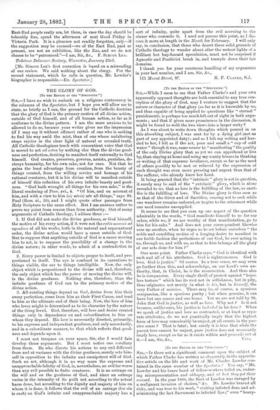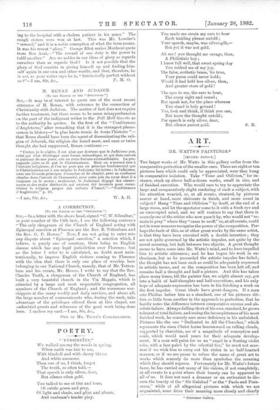[To THE EDITOR OF THE "SpEcTATon."] SIR, — Is there not a
significant comment upon the subject of which Father Clarke has written so eloquently, in the apprecia- tive article on the life and work of Mr. Charles Lowder con- tained in the same number of the Spectator ? You say, "Mr. Lowder and his brave band of fellow-workers toiled on, endur- ing misrepresentation and obloquy, and at last they got their reward. In the year 1866, the East of London was ravaged by a malignant invasion of cholera," itc. Mr. Lowder braved all risks, and was true to his work, "visiting infested dens and ad- ministering the last Sacrament to infected lips ;" even "hurry-
ing to the hospital with a cholera patient in his arms." The rough rioters were won at last. This was Mr. Lowd.er's "reward," and it is a noble conception of what the term means. It was his truest "glory." George Eliot makes Mordecai quote from Ben Azai,—" The reward of one duty is the power to fulfil another." Are we nobler in our ideas of glory as regards ourselves than as regards God ? Is it not possible that the glory of God consists in giving himself up and finding him- self again in our own and other worlds, and that, therefore, he is not, as your writer says he is, "Intrinsically perfect without







































 Previous page
Previous page